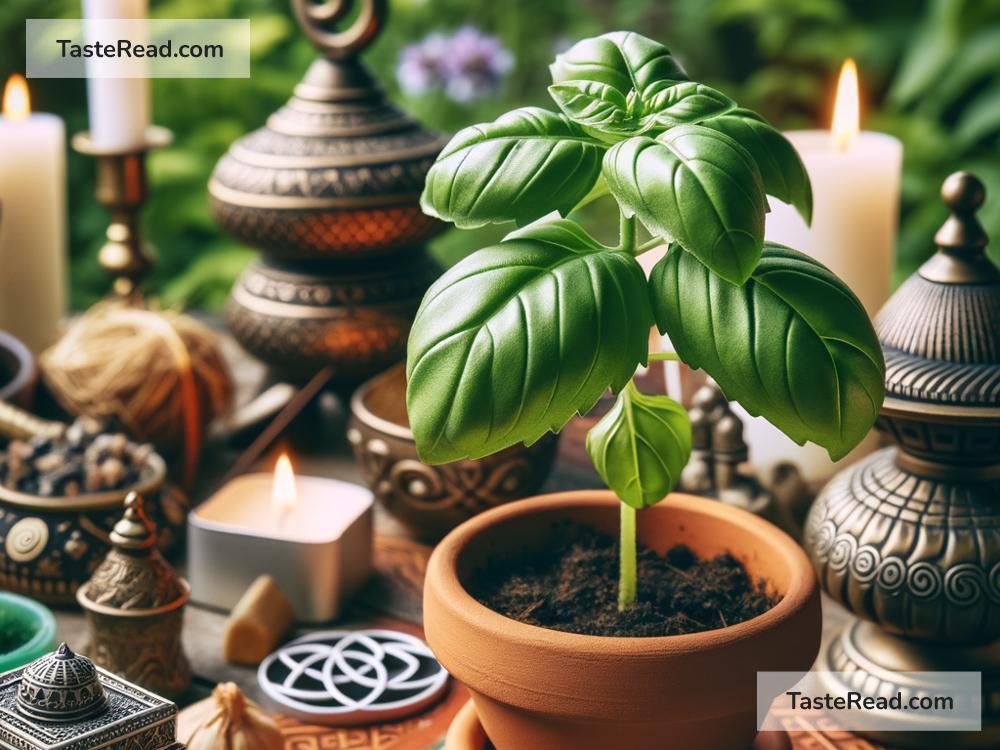Why Basil Is Considered Sacred in Some Cultures
Basil, a fragrant and flavorful herb, has been used for thousands of years in cooking, medicine, and rituals. But did you know that basil is considered sacred in several cultures? This humble green plant, often found in gardens and kitchens, holds deep spiritual and cultural significance in many parts of the world. In this blog, we’ll explore why basil is revered and how its meaning goes far beyond being a delicious addition to sauces and soups.
What Is Basil?
Basil is a herb that belongs to the mint family. Its scientific name is Ocimum basilicum, and it is native to tropical regions, particularly Asia and Africa. Today, basil can be found all over the world, where it’s grown for its culinary and medicinal properties. With its sweet aroma and flavorful leaves, basil is a staple ingredient in many dishes, including pasta sauces, salads, and drinks. But beyond its practical uses, basil is also tied to stories, traditions, and religious beliefs.
The Sacred Side of Basil
The way basil is viewed varies around the world, but in certain cultures, basil takes on a holy meaning. Let’s take a closer look at where basil is considered sacred and why.
Hinduism
In Hinduism, holy basil, known as Tulsi, is one of the most sacred plants. Tulsi isn’t the same as the common basil used in cooking; it is another variety called Ocimum sanctum. Hindus believe that the Tulsi plant is an earthly representation of the goddess Lakshmi, who is the goddess of wealth, prosperity, and good fortune. Tulsi is also said to be dear to Lord Vishnu, one of the major deities in Hinduism.
For Hindus, Tulsi is not just a plant—it’s a living symbol of spirituality and purity. Many families grow Tulsi plants in their homes or gardens and pray to it daily. Tulsi leaves are often used in religious ceremonies, offerings, and rituals. It is believed that by caring for the Tulsi plant, people can invite positive energy, protection, and blessings into their lives.
Ancient Greece and Rome
In ancient Greece and Rome, basil had spiritual significance but in a different way. Basil was often linked to love and protection. In some traditions, basil was seen as a plant connected to the afterlife or the gods. For example, basil might be placed on graves or used in rituals to honor the dead. In addition, basil’s strong fragrance made people think it had magical or healing properties.
The Greeks also had a curious belief about basil—they thought it would only grow well if planted with anger! While this idea may seem strange to us today, it shows how much importance they attached to this herb in their culture.
Christianity
In some Christian traditions, basil is associated with sacred events and miracles. One story says that basil grew near the cross where Jesus was crucified. Because of this, basil became a symbol of love, faith, and resurrection. In Eastern Orthodox Christianity, basil plays an important role in religious ceremonies. For instance, it’s used to prepare holy water, and sprigs of basil may be placed near altars.
The connection between basil and Christianity emphasizes the idea of renewal and divine blessings, making it more than just an herb—it becomes a symbol of deeper truths in life.
Why Is Basil So Special?
Basil’s sacred status in these cultures likely comes from the combination of its practical uses and deeper symbolic meanings. Here are a few reasons why people revere basil:
-
Healing Properties: Basil has long been known for its medicinal benefits. It contains essential oils that help reduce inflammation, lower stress, and boost the immune system. Many ancient traditions saw healing plants as gifts from the divine.
-
Fragrance: Basil’s pleasant smell makes it stand out. In ancient times, people often associated fragrant plants with purity and holiness.
-
Cultural Stories: Over the centuries, basil has found its way into myths and stories. These tales have strengthened its status as a “special” plant with connections to gods, spirits, or powerful energies.
-
Symbol of Life and Protection: Basil’s ability to thrive in various climates, along with its association with health and renewal, made it a symbol of life and protection in many cultures.
Modern Reverence
Even today, basil continues to be admired around the world. In India, families still grow Tulsi for religious purposes, while in Europe and the Mediterranean, basil is cherished for its culinary and historical significance. People may no longer worship basil in the way they did in ancient times, but they still recognize its importance in their lives, whether as a flavorful herb or a plant with deep-rooted cultural ties.
Conclusion
Basil is much more than a kitchen herb—it’s a plant rich with spiritual meaning and cultural history. Whether seen as a sacred symbol in Hinduism, a love-linked plant in ancient Greece, or a holy herb in Christianity, basil has left a lasting impression on the hearts and minds of people across the globe. Next time you add basil to your recipe or admire it in a garden, think about the stories and traditions behind those fragrant green leaves. Basil’s sacredness reminds us that even the simplest plants can carry powerful messages of healing, protection, and connection to the divine.


